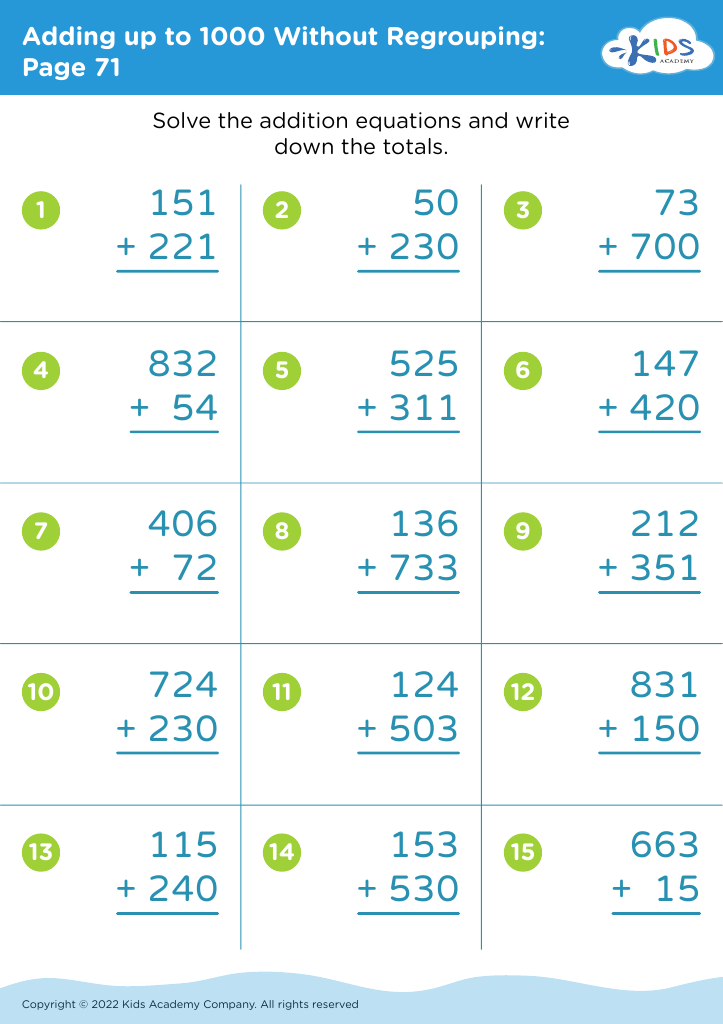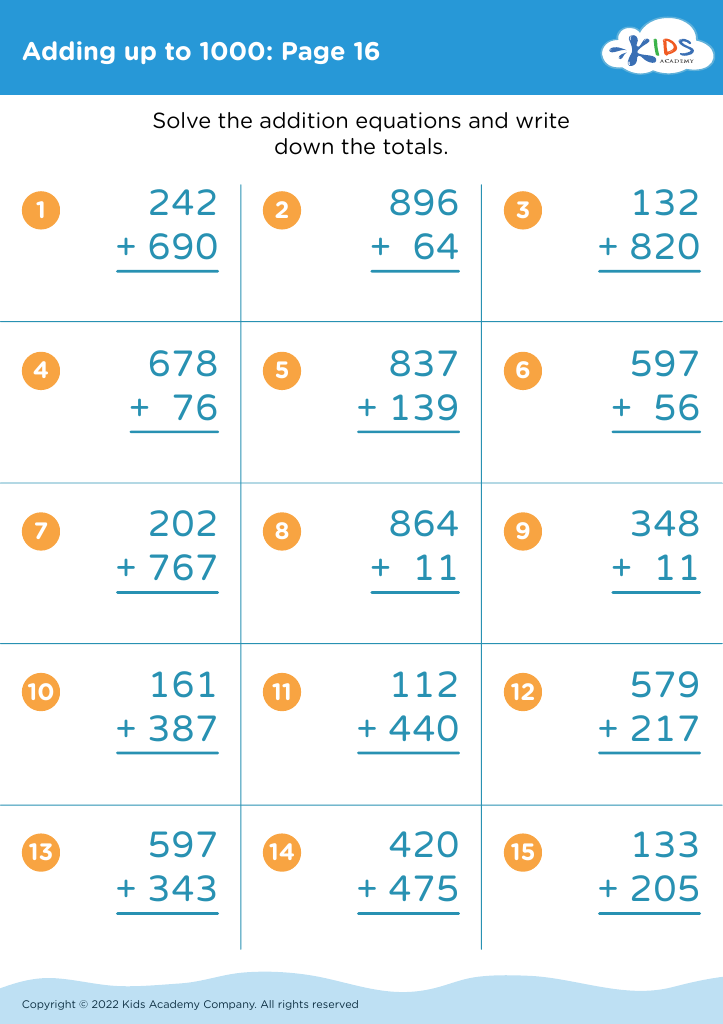Improve counting Addition Worksheets for Ages 4-9
3 filtered results
-
From - To
Enhance your child's mathematical skills with our "Improve Counting Addition Worksheets" designed specifically for ages 4-9. These engaging printable resources make learning fun by combining colorful illustrations with straightforward exercises. Your child will practice counting and mastering addition through a variety of activities, including visual aids and interactive puzzles that foster critical thinking. Whether at home or in the classroom, these worksheets are a great tool for reinforcing counting skills while building a strong foundation for future math concepts. Watch your child's confidence grow as they learn to solve problems independently, paving the way for a successful learning journey in mathematics!
Teaching children to improve counting and addition skills at ages 4-9 is crucial for their overall development and future academic success. During these formative years, children's brains are incredibly receptive to learning new concepts, making it an ideal time for introducing foundational math skills. Counting bolsters numeracy, which is essential not only in mathematics but also in real-world contexts, such as budgeting and measuring.
Early mastery of addition fosters a sense of achievement and builds a child's confidence. As they grasp these skills, they develop problem-solving abilities that are applicable across different subjects. Engaging in counting activities and fun addition games can also promote critical thinking, as children learn to analyze numbers and explore patterns.
Moreover, improved counting and addition skills lay the groundwork for more complex mathematical concepts encountered later, such as multiplication and division. Additionally, these skills encourage the development of perseverance and resilience, as children learn to tackle challenges and gradually improve their abilities.
By focusing on counting and addition, parents and educators can equip children with essential tools for academic achievement and daily life skills, ultimately setting them on a path to become confident and competent learners.
























